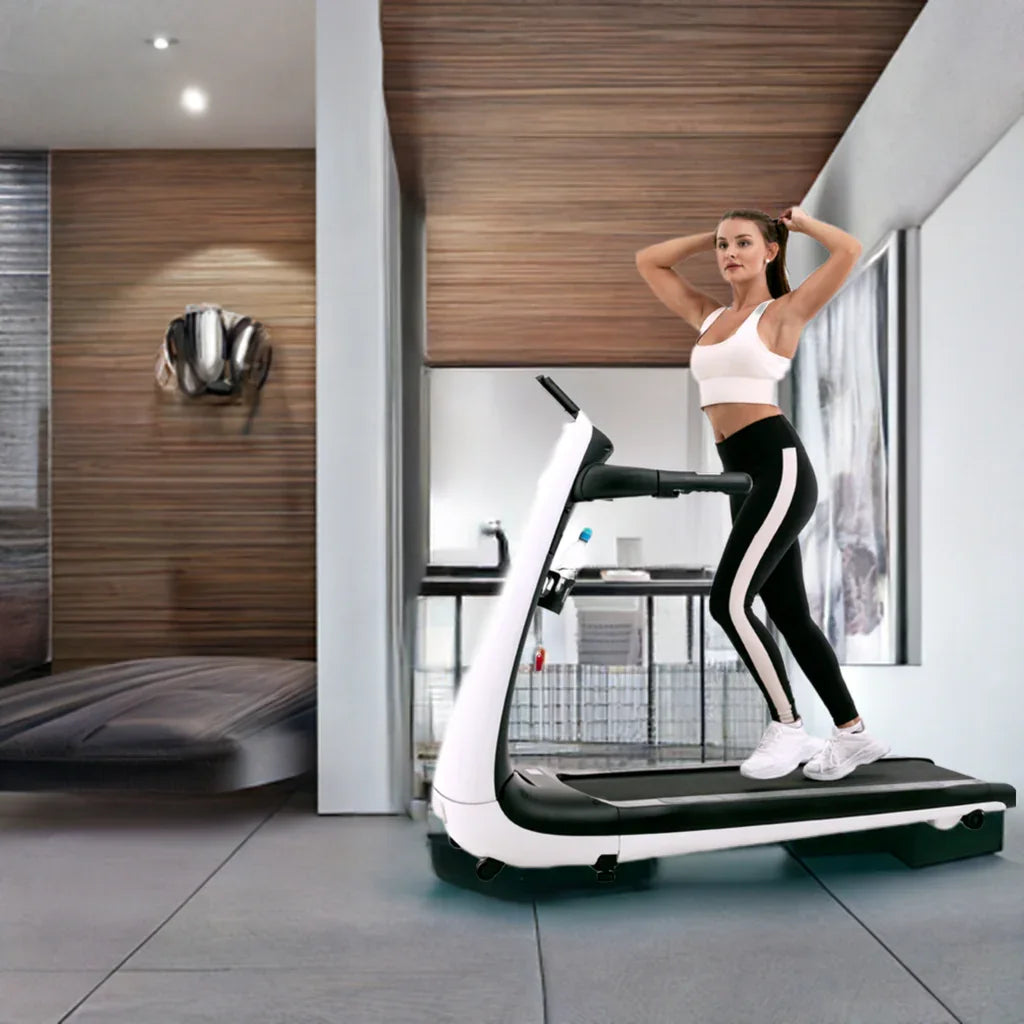Treadmills are now cornerstones of home fitness, yet their origins tell a very different story. Once used for punishment and medical testing, they’ve evolved into sleek, intelligent machines that make movement part of daily life. This guide explores their surprising past, benefits backed by science, and the technology redefining how we move in 2025.

The Origins of Treadmills
In the early 1800s, “treadwheels” powered by human effort were built for prisons to grind grain or pump water. By mid-century, these devices evolved into medical tools when Dr. Robert Bruce introduced the treadmill stress test — a major step toward understanding cardiovascular fitness.
Treadmills Enter Modern Fitness
By the 1980s, the treadmill became a household staple. According to the American College of Sports Medicine, it remains the most used cardio machine worldwide. Compact and reliable, modern designs like the BeHealthy Foldable Treadmill merge quiet motors, intuitive screens, and elegant styling — transforming exercise into a daily ritual.
The Benefits of Treadmills: Research Insights
- Convenience: Work out anytime, rain or shine. A report from the International Health & Sportsclub Association found 70% of users favour treadmills for accessibility.
- Customisation: Adjust speed and incline to match your pace and goals.
- Consistency: A flat, stable surface means smoother, safer workouts.
Technological Advancements in Treadmills
Today’s treadmills include HD touchscreens, heart-rate sensors, and smart connectivity. The iRunner Treadmill syncs with apps for real-time data and interactive sessions. Compact, foldable frames — ideal for UK flats — now come with energy-saving motors and refined noise control.

Enhancing the User Experience
Live classes, scenic routes, and app-controlled sessions now define treadmill workouts. Quiet decks and cushioning systems allow early-morning runs or evening walks without disruption. The BeHealthy’s Intelligent Cushioning System keeps every step smooth and stable.
Future Trends in Treadmill Design
Innovation continues with VR-enabled running routes and AI-driven coaching. Models like Fuji’s upcoming ProMax AI integrate adaptive fitness plans that evolve with each session — blending technology and personalisation seamlessly.
Choosing the Right Treadmill
Before buying, consider space and goals. For small flats, a foldable BeHealthy offers easy storage. For smart features, the iRunner delivers HD visuals and advanced tracking. Visit Fuji Health to explore models built for every lifestyle.
Sustainability in Modern Fitness
Eco-friendly models now feature recyclable materials, standby modes, and self-powered systems — reducing energy use without compromising performance. Sustainability is becoming a defining mark of premium treadmill engineering.
Historical Facts You Might Not Know
Early treadmills were fully human-powered — no motors, no screens, just manpower. In 1952, Dr. Kenneth Cooper, known as the “father of aerobics,” introduced the first motorised treadmill, marking the shift from medical to mainstream fitness.
Conclusion
The treadmill’s evolution from discipline to innovation tells a story of resilience and reinvention. Today, models from Fuji Health bring together decades of engineering progress, blending form, function, and forward-thinking design.
FAQs: The Evolution of Treadmills
Q: Who invented the first treadmill?
A: The first recorded treadmill was developed in the early 1800s as a prison “treadwheel.” Dr. Kenneth Cooper later introduced the first motorised treadmill for fitness in 1952.
Q: Why are modern treadmills so popular?
A: They combine convenience, technology, and space-saving design — allowing anyone to stay active at home year-round.
Q: What makes Fuji Health treadmills unique?
A: Fuji Health focuses on compact, stylish, and intelligent designs — from the foldable BeHealthy to the advanced iRunner series.















